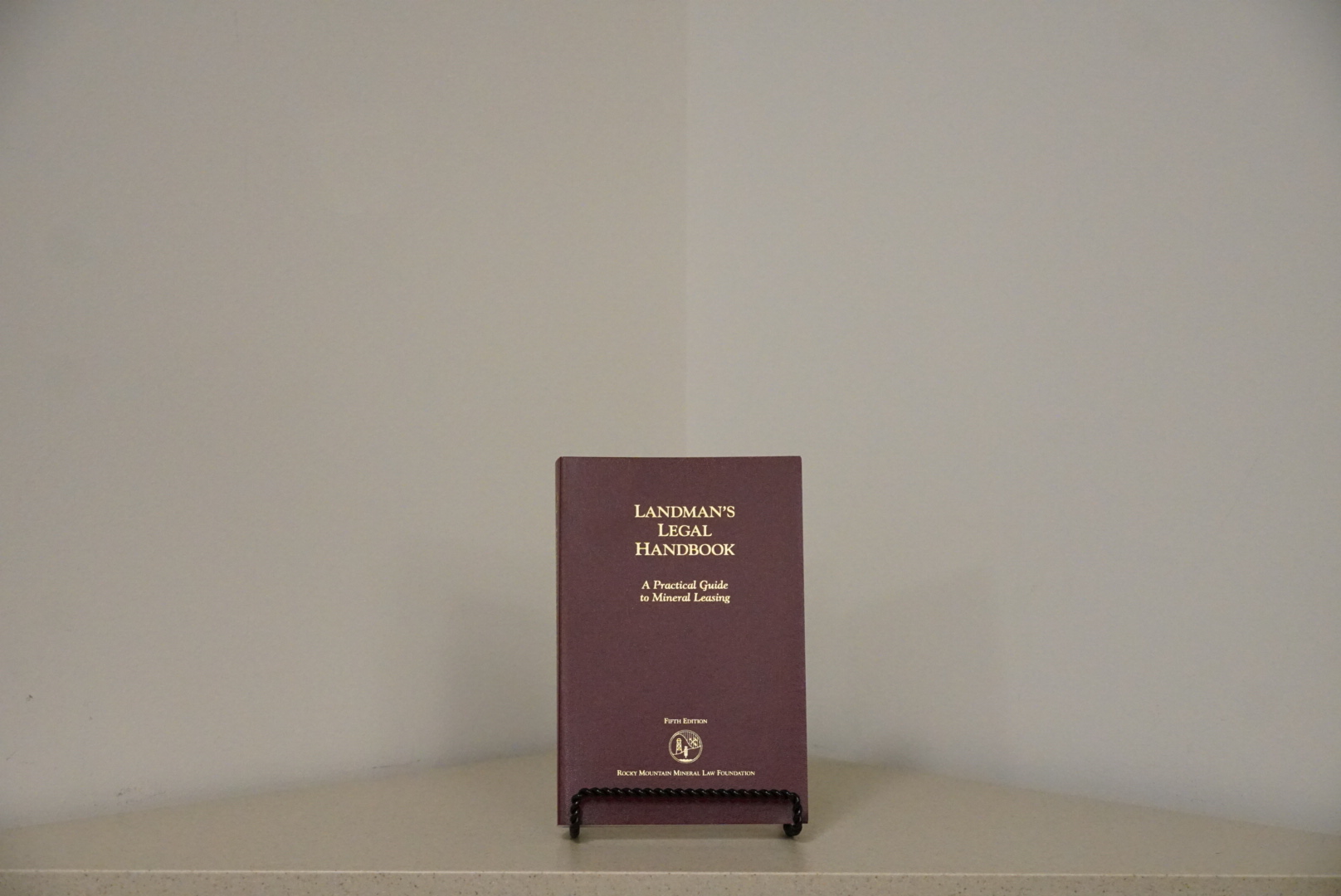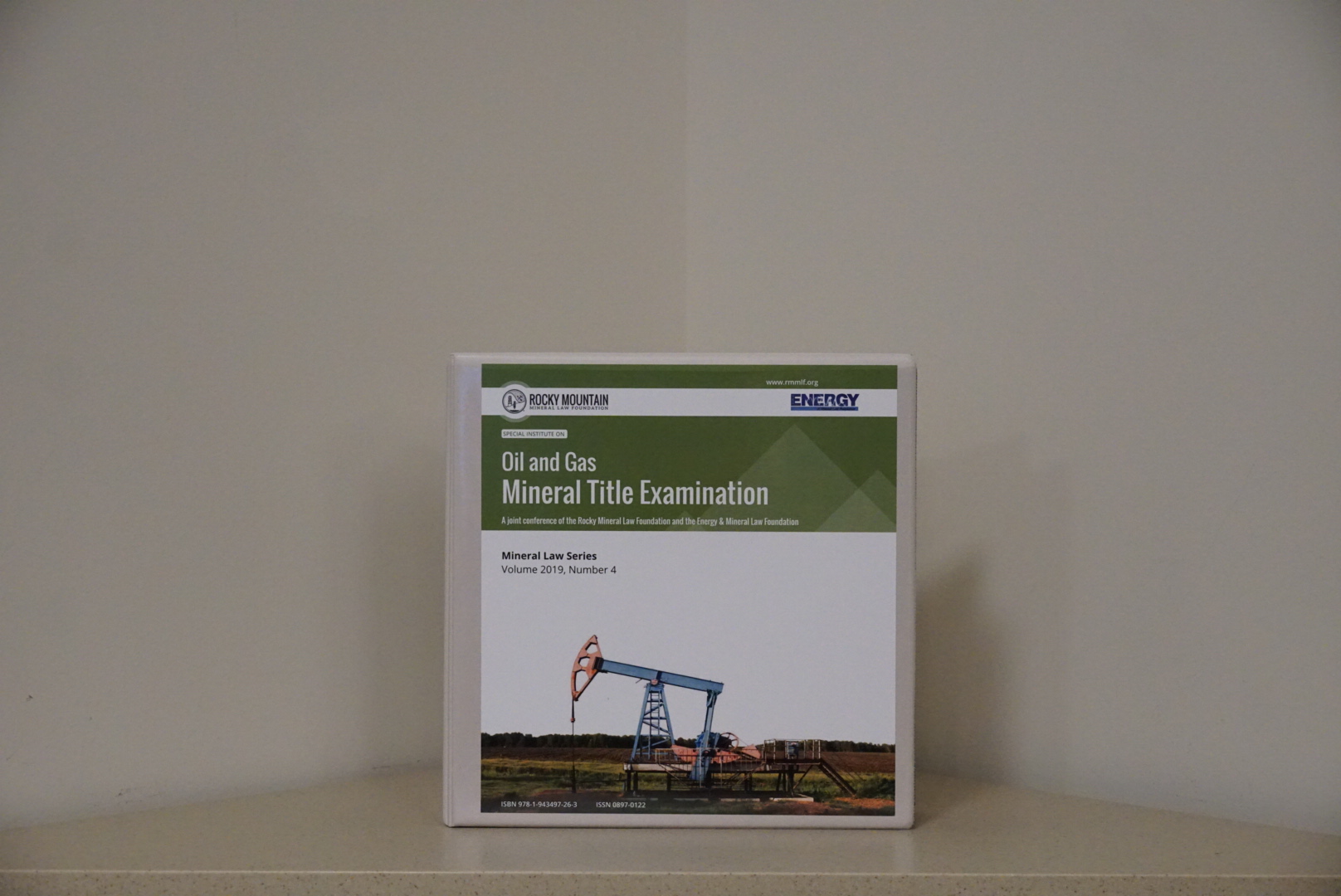Exploring the landman profession can feel like stepping into a whole new world, full of unique terms and important responsibilities. For anyone looking to understand this field, or perhaps even join it, finding the right resources is, you know, pretty important. This is where landman books truly shine, offering a solid foundation of knowledge and practical advice. They help people grasp what it takes to work with land and mineral rights, which is, honestly, a very specialized area of work.
These specialized books provide a window into the daily life and essential duties of a landman, a role that connects landowners with energy development. They explain everything from property ownership details to the finer points of legal agreements. For example, you might discover how someone like Marc, who first learned about landmen while at American Land Title Company in Bozeman, Montana, back in 1976, could build a successful path in this area. It's a field that, quite frankly, demands a lot of precise information.
So, whether you're just curious about how land and resources are managed, or you're thinking about a professional journey in this sector, landman books are your go-to source. They offer insights that are often hard to find elsewhere, making them, in a way, indispensable tools for learning and growth. These texts really do lay out the groundwork for what can be a very interesting career.
Table of Contents
- What Exactly Does a Landman Do?
- The Importance of Landman Books
- Meet the Experienced Landmen: Marc and Curt
- Marc's Journey
- Curt's Path
- Key Topics Covered in Landman Books
- Mineral Rights and Ownership
- Title Examination
- Leasing and Contracts
- Negotiation Skills
- Regulatory Compliance
- Finding the Right Landman Books for You
- Frequently Asked Questions About Landman Books
- Continuing Your Learning in the Landman Field
What Exactly Does a Landman Do?
A landman, in simple terms, acts as a bridge between landowners and companies that want to develop natural resources, like oil and gas, on or under their property. Their main job involves securing the necessary rights to explore and produce these resources. This work, you see, requires a lot of careful investigation and communication. They spend a good deal of time researching property records and talking with landowners.
This profession often involves going out into the field to gather information, check property lines, and speak directly with people who own the land or the mineral rights. It's a job that, for instance, requires a keen eye for detail and strong interpersonal skills. A landman might be looking at old deeds, county records, or even talking to family members to understand who truly owns what. So, there's a real detective aspect to it.
Ultimately, their goal is to make sure that energy projects can move forward smoothly, with all the proper agreements in place. They help prevent future legal issues by making sure everything is done by the book. This means, basically, they ensure that all parties involved are treated fairly and that the paperwork is absolutely correct. It’s a pretty vital role in the energy sector, you know.
The Importance of Landman Books
Landman books serve as foundational guides for anyone entering or already working in this specialized field. They offer a structured way to learn about the intricate details of land and mineral rights, which can be, quite frankly, a bit overwhelming at first glance. These texts break down complex legal concepts into more manageable pieces, helping readers grasp the core ideas.
For someone just starting out, these books provide a roadmap to understanding the history of property ownership, different types of deeds, and how mineral estates are handled. They are, in a way, like having a seasoned mentor right there with you, explaining the ins and outs. Without these resources, figuring out the specific language and procedures of land work would be, honestly, much harder.
Even experienced professionals find value in these publications. They can use them to brush up on specific topics, stay current with changes in regulations, or explore new aspects of the profession. So, whether you are a newcomer or a long-time practitioner, these books are, apparently, always a good idea for continuous learning and reference. They help maintain a high standard of practice across the industry.
Meet the Experienced Landmen: Marc and Curt
The world of landmen is rich with individuals who have dedicated many years to their craft, learning through direct experience and formal study. People like Marc and Curt, for instance, show how a career in this field can develop over decades, building deep knowledge and connections. Their stories give us a glimpse into the practical side of becoming a skilled landman.
Marc's Journey
Marc's path into the landman profession started, rather interestingly, in 1976. He first encountered the term "landman" while working for the American Land Title Company in Bozeman, Montana. This early exposure, you see, sparked his interest in a field that would become his life's work. It goes to show how sometimes, a chance encounter can shape a whole career.
Over time, Marc grew his expertise and became an independent landman. This meant he worked for himself, taking on projects directly and managing his own operations. He was, in fact, one of the owners of a business, which speaks to his entrepreneurial spirit and his deep commitment to the industry. His journey highlights the potential for self-direction within this profession.
Being an independent landman requires a broad range of skills, from research and negotiation to business management. Marc’s experience as an owner further illustrates his comprehensive understanding of the land business. It’s clear he built a very solid foundation in the field, which is, honestly, quite inspiring for others looking to follow a similar path.
Curt's Path
Curt has been a field landman since 1981, which means he has spent decades working directly on the ground, gathering information and making connections. His extensive experience spans several key energy-producing states, including Texas, Oklahoma, Utah, Arkansas, and Montana. This wide geographical exposure, you know, gives him a very broad perspective on regional differences in land practices.
A significant step in Curt's professional life came in 1997 when he joined the American Association of Professional Landmen (AAPL). This membership connected him with a larger community of professionals and resources. After joining, Curt also earned his Certified Professional Landman (CPL) designation, which is, basically, a mark of high achievement and ethical practice in the field. It shows his dedication to professional standards.
The CPL certification requires rigorous testing and adherence to a strict code of conduct, indicating a deep level of knowledge and commitment. Curt’s long career as a field landman, combined with his professional certifications, demonstrates a continuous pursuit of excellence. His story is, in some respects, a great example of sustained professional growth and dedication to the landman community.
| Name | First Exposure/Start Year | Key Experience | Professional Affiliations/Certifications | Geographic Reach (Curt) |
|---|---|---|---|---|
| Marc | 1976 (American Land Title Company, Bozeman, MT) | Independent Landman, Business Owner | N/A (from provided text) | N/A |
| Curt | 1981 (Field Landman) | Field Landman since 1981 | Joined AAPL in 1997, Earned CPL | Texas, Oklahoma, Utah, Arkansas, Montana |
Key Topics Covered in Landman Books
Landman books cover a wide range of subjects, all designed to equip readers with the knowledge needed to succeed in the field. These topics are, for instance, essential for understanding the legal and practical aspects of land and mineral rights. They help you build a solid foundation, which is, honestly, what you need to be effective.
Mineral Rights and Ownership
One of the most fundamental topics in landman books is the concept of mineral rights and how ownership works. This isn't always as simple as owning the surface of the land; often, the minerals beneath are owned by someone else entirely. These books explain the historical context of mineral severance and how different estates are created. It’s a very specific area of property law, you know.
They delve into the various ways mineral rights can be conveyed, inherited, or leased, which can be, frankly, quite complex. Understanding the chain of title for minerals is absolutely crucial for a landman, as it determines who has the right to negotiate for their extraction. So, these sections provide the core information for tracking down rightful owners and making sure all agreements are valid.
Learning about the different types of mineral interests, like royalty interests or working interests, is also a big part of this. These distinctions, you see, affect how payments are made and how responsibilities are shared. Landman books offer clear explanations and examples to help clarify these often-confusing concepts, making them, in a way, much easier to grasp.
Title Examination
Title examination is a core skill for any landman, and books dedicated to the profession spend considerable time on this subject. This process involves thoroughly researching public records to confirm who truly owns a piece of property and its associated mineral rights. It's about, basically, creating a complete ownership history. This work is, apparently, incredibly detailed.
These texts teach you how to read and interpret various documents, such as deeds, probate records, and court filings. They guide you through the steps of building a "chain of title," which traces ownership back through time to ensure there are no breaks or errors. The goal is to identify any potential issues or "clouds" on the title that could cause problems later. So, it's a bit like being a historical detective for property.
Good landman books provide practical advice on where to find these records, how to organize your findings, and what common pitfalls to look out for. They often include examples of real-world scenarios, helping readers apply theoretical knowledge to practical situations. This part of the job, you know, requires a lot of patience and precision to get it right.
Leasing and Contracts
Understanding oil and gas leases and other contractual agreements is another major focus of landman books. These documents are the backbone of resource development, outlining the terms and conditions between landowners and energy companies. They are, in fact, very specific legal instruments that need careful attention.
The books break down the various clauses found in typical leases, explaining what each section means and its implications for both parties. Topics include primary terms, delay rentals, royalty provisions, and Pugh clauses, among others. Learning to draft, negotiate, and interpret these agreements is, honestly, a critical skill for a landman. It’s about protecting everyone’s interests.
They also cover other types of contracts a landman might encounter, such as surface use agreements, easements, and joint operating agreements. These sections provide practical guidance on how to approach negotiations and ensure that all terms are fair and legally sound. So, you’ll find that a good grasp of these contractual details is, basically, non-negotiable for success in the field.
Negotiation Skills
While much of a landman's work involves research and legal documents, effective negotiation skills are, in some respects, just as important. Landman books often dedicate sections to the art of negotiation, recognizing that much of the job involves discussions with landowners, attorneys, and company representatives. It's about finding common ground, you know.
These resources offer strategies for building rapport, communicating clearly, and resolving potential conflicts. They emphasize the importance of listening, understanding the other party's perspective, and presenting information in a way that encourages agreement. For example, they might discuss how to handle difficult conversations or how to present an offer persuasively. It’s a very human element of the job.
Learning to be persuasive without being aggressive, and to be firm while remaining respectful, is a delicate balance. Good landman books provide techniques for achieving this, helping professionals reach mutually beneficial outcomes. So, you’ll find that developing these soft skills is, apparently, just as important as mastering the technical details of the law.
Regulatory Compliance
The landman profession operates within a framework of state and federal regulations, and landman books are essential for staying compliant. These regulations can vary significantly from one jurisdiction to another, making it, frankly, a complex area to keep up with. These texts provide an overview of the legal landscape that governs oil and gas exploration and production.
They cover topics such as environmental regulations, permitting processes, and reporting requirements. Understanding these rules helps landmen ensure that all activities are conducted legally and responsibly, avoiding fines or legal challenges. For instance, knowing the specific rules for a particular state, like Texas or Montana where Curt has experience, is, obviously, vital. It’s about doing things the right way.
Keeping up with changes in laws and policies is an ongoing responsibility, and these books serve as valuable references for current information. They help professionals navigate the legalities of land use and resource development. So, these sections are, in a way, like a legal compass, guiding landmen through the regulatory maze and helping them avoid missteps.
Finding the Right Landman Books for You
Choosing the right landman books depends a lot on your current level of experience and what you hope to achieve. If you're just starting out, you might look for introductory texts that explain the basics in plain language. These books are, basically, your first step into the field, providing a broad overview before you get into the finer points.
For those with some experience, more advanced books might focus on specific legal topics, regional differences in land law, or advanced negotiation strategies. You could also look for books that address particular challenges, like working with complex mineral ownership structures. So, tailoring your reading to your specific needs is, you know, a very smart approach.
Consider looking for books that are recommended by professional organizations, like the American Association of Professional Landmen (AAPL), as these are often vetted for accuracy and relevance. Reading reviews from other landmen can also help you decide which titles offer the most practical value. It’s all about finding resources that, quite frankly, make sense for your learning style and goals.
Frequently Asked Questions About Landman Books
People often have similar questions when they start looking into landman books or the profession itself. Here are a few common inquiries that, you know, tend to pop up, along with some helpful answers.
What is a CPL in landman?
A CPL stands for Certified Professional Landman. It's a certification offered by the American Association of Professional Landmen (AAPL) that signifies a high level of expertise, experience, and ethical conduct in the landman profession. Curt, for instance, earned his CPL after joining the AAPL in 1997. It’s a way of showing that you’ve met specific industry standards, which is, basically, a big deal in the field.
What is a landman in oil and gas?
In oil and gas, a landman is someone who researches land and mineral ownership, negotiates agreements with landowners for the right to explore for and produce oil and gas, and manages land-related aspects of energy projects. They are the people who, in a way, make sure companies have the legal access they need to develop resources. They are, apparently, a key part of the energy industry's foundation.
How do I become a landman?
Becoming a landman often involves a combination of education, practical experience, and professional development. Many start with a relevant college degree, perhaps in energy management, law, or business. Gaining field experience, like Curt did since 1981, is also very important. Joining professional groups like the AAPL and pursuing certifications, such as the CPL, can also help you advance your career. You can learn more about how to get started in this profession on our site, which is, honestly, a great resource.
Continuing Your Learning in the Landman Field
The landman profession is always changing, with new technologies, regulations, and market conditions shaping the work. Because of this, continuous learning is, you know, incredibly important for staying effective and competitive. Landman books are a fantastic starting point, but they are just one piece of the puzzle for ongoing professional growth.
Beyond books, attending industry conferences, participating in workshops, and joining professional associations like the AAPL can offer valuable opportunities to learn from peers and experts. For example, events like the one on Oct 22, 2025, from 07:30 to 13:30 (CT), are designed to share more information and help professionals stay current. These gatherings provide insights into the latest trends and best practices. So, staying connected is, basically, key.
Embracing new information and constantly refining your skills will help you thrive in this dynamic field. Whether it's through reading, networking, or formal training, making learning a regular part of your routine will ensure you remain a valuable asset in the land and energy sector. It’s about, frankly, always building on what you know to keep moving forward.



Detail Author:
- Name : Lorenzo Berge
- Username : harber.jennie
- Email : kadin68@yahoo.com
- Birthdate : 1980-11-08
- Address : 84177 Tremblay Pines Suite 788 New Gaylordtown, MD 05120-2972
- Phone : +1-570-476-6508
- Company : Davis, Gottlieb and Hayes
- Job : Conveyor Operator
- Bio : Sit quidem facilis in veritatis corporis voluptas. Occaecati voluptas veritatis amet eum. Et doloremque autem non architecto.
Socials
linkedin:
- url : https://linkedin.com/in/gradyc
- username : gradyc
- bio : Ut ad aut iste repudiandae.
- followers : 368
- following : 2205
tiktok:
- url : https://tiktok.com/@cgrady
- username : cgrady
- bio : Voluptatem occaecati ipsam qui tempora vitae placeat omnis.
- followers : 5905
- following : 2245
instagram:
- url : https://instagram.com/chelsea_grady
- username : chelsea_grady
- bio : Laudantium ipsa aliquid repudiandae. Excepturi esse velit illo est.
- followers : 3876
- following : 945